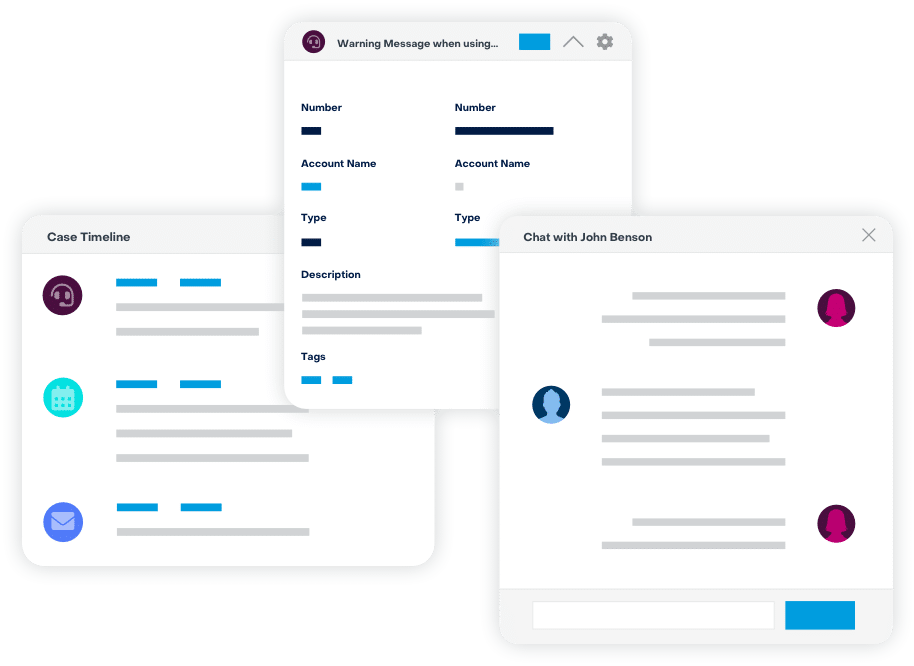Mastering Sales ROI in Manufacturing: Automating Sales Processes for Maximum Efficiency
Welcome to the third part of our four-part series, Mastering Sales ROI in Manufacturing: A SugarCRM Guide. In this third part, we dive into how to master automating sales processes for maximum efficiency. In the first two parts of our series, we discussed The Strategic Facets of Lead and Opportunity Management and The Art and Science Behind Sales Forecasting. If you haven’t read the first two parts, hop on to our blog section and read those before. In this part, we will investigate how to approach sales automation as a manufacturing enterprise, which tools you shouldn’t miss from your arsenal, and how we at Sugar can help you exponentially grow your process efficiency with the help of sales automation. So, buckle up, and let’s get started!
What It Is Sales Automation and How Does It Help Manufacturing Enterprises
As a manufacturing enterprise, you have an extensive portfolio of complex products. And as a result, your sales reps might find it difficult to adequately quote those.
Handling so many manual tasks in the sales process is complicated. Still, sales reps in manufacturing organizations seem to find it more difficult to split their attention between multiple clients, extensive product catalogs, and a series of other manual tasks. As a result, mistakes can happen: delays, chargebacks, returns, and unhappy customers.
But sales doesn’t have to be complicated to this extent. Enter sales automation.
Sales automation lets you leverage technology to automate those repetitive tasks that create a workload burden within your teams to reduce costs, save time, cultivate stronger customer relationships, and improve efficiency overall in your sales teams.
The primary role of sales automation is to automate different stages in the sales process, from initial lead generation to closing those deals. Here are some critical areas where sales automation can play a determinant role:
- Data Entry: automatically capturing customer data reduces the risk of manual error. Automated data entry helps you to ensure your customer data is always up-to-date and accurate.
- Reporting: generate real-time reports based on the data automatically captured by your CRM or Sales Automation software.
- Analytics: analyze data and generate valuable insights into your team’s performance.

With all these perks at your fingertips, you can save valuable time and get a complete view of your sales process. This lets you and your sales team identify which processes and strategies need improvement and where you excel. It also enables you to make more informed, data-driven decisions.
How Does Business Process Automation Enhance Sales Automation?
Sales Automation is a valuable asset in every company’s tech stack, but you should look into solutions that feature Business Process Automation capabilities. Business Process Automation helps you streamline everyday business processes by managing approvals, sales processes, call triaging, and more.
For example, Sugar provides SugarBPM, an easy-to-use business process management (BPM) workflow tool that adds advanced BPM functionality to Sugar Sell, Sugar Serve, and Sugar Enterprise. Sugar’s business automation software is the perfect solution for improving efficiency and daily processes without human intervention. Here’s exactly what areas you’ll be able to improve with the help of similar features:
- Optimize any customer-facing process, no matter how complex.
- Enhance end-to-end processes across entire departments to ensure best practices are followed. This way, you’ll increase employee efficiency and employee satisfaction.
- Automate simple tasks to transform your entire business, minimize repetitive tasks, and reduce the risk of manual errors.
- Automate complex business rules, email templates, process flows, and monitoring across your organization.
Integrate with external third-party systems to break down organizational silos and ensure cross-departmental process automation. - Automate sales and customer service activities to sell more and improve customer satisfaction.
Start your digital transformation with SugarBPM and take advantage of every opportunity.
Proper Implementation of Sales Automation and BPM In Manufacturing
Now that you know how sales automation can help your manufacturing enterprise, let’s see how you can ensure the proper implementation:.
1. Identify Repetitive Tasks
Start by looking at repetitive tasks that can be automated. Automated email responses, data entry, follow-ups, and lead nurturing are all excellent candidates. We mentioned previously the advantages that derive from automating such tasks, so make sure that you carefully analyze your processes and sales steps for the best outcomes.
2. Carefully Select Your Tools
With your process automation needs in mind, you can now look into solutions that meet your needs. While there are numerous CRMs, email marketing and automation tools, and sales automation software available on the market, make sure that you select a solution that acts as a central hub of your operations across the entire organization. This will help you ensure that the most critical tasks are automated flawlessly and that company-wide data is considered when generating reports and analytic insights.

3. Define Your Automated Processes Using a BPM Feature
Once you select the right vendor, you must discuss clear steps in each process you want to automate and map them out. This will help keep organizational consistency and that best practices are always followed. Apart from setting up workflows, you must define automation rules and integrate all your processes across the organization to ensure a flawless data flow.
For example, let’s say you run a business that makes custom machinery. You could use SugarCRM to automate the initial client onboarding process. After a customer places an order, an automated email could go out thanking them and outlining the next steps.
4. Measure the Success of Your Automation Initiative
To determine the success and impact of your sales automation initiatives, you need to track several KPIs and see where you can improve further and which processes are working as expected. Here are some KPIs you should follow when deploying sales automation:
- Conversion Rate: you need to measure the percentage of leads that turn into buying customers. Sales automation is an excellent way to identify high quality leads with higher conversion chances.
- Sales Cycle Length: track if you succeed in decreasing the time from initial contact to closing a deal. Since automation is mainly implemented to streamline sales processes, your sales cycles should become shorter or more streamlined if implementation is successful.
- Revenue Growth: Make sure to look constantly at the revenue generated by your sales team. Because automation plays a significant role in increasing sales efficiency and spotting high quality leads, you should notice higher numbers after a successful implementation.
Sales automation is not a one-time project. In fact, it requires constant tracking and fine-tuning to ensure proper results. As a result, you should periodically review sales automation workflows and rules and analyze data insights that uncover how your strategy is performing.
If you want to learn more about CRM implementation for manufacturing companies, read our guide, Connecting the Manufacturing Value Chain – Bridging the Gap Between Front & Back Office. And, as always, feel free to get in touch with us if you have any questions!



